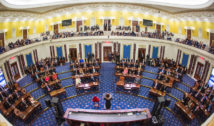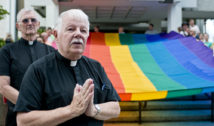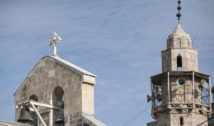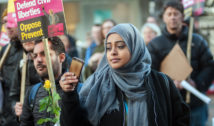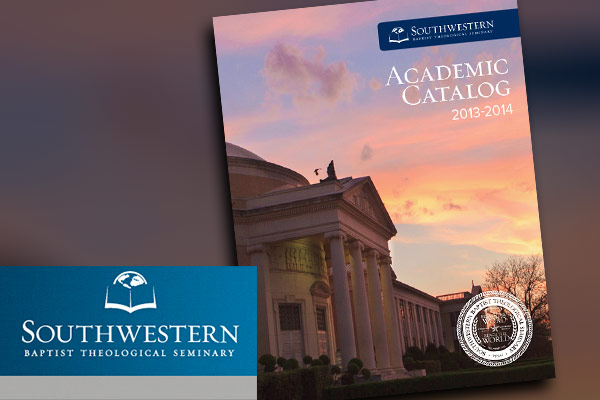
Southwestern Seminary Accepts First Muslim Student
- By Krista R. Burdine --
- 23 May 2014 --

Theres a furor surrounding the discovery that a Muslim student is attending Southern Baptist Theological Seminary.
How much responsibility does the head of a private institution have to spend money according to its stated policies, and is it ever appropriate to sidestep those policies instead of revising them? That seems to be the issue at the heart of the furor surrounding this week’s revelation out of Southwestern Baptist Theological Seminary (SWBTS), that a Muslim has been attending classes on the Fort Worth, Texas, campus as a student this year.
Archaeology group works historical dig in Israel
Southwestern Baptist Theological Seminary includes among its course offerings an archaeology program, through which students participate in an ongoing dig site in Tel Gezer, Israel. At any given time, about 20 Southwestern students are working this dig with about 60 students, including Israeli and Muslim students, from other schools. Since 2008, Palestinian Sunni Muslim Ghassan Nagagreh has participated in the dig as a volunteer alongside seminary students and staff.
As a result of his positive experience with members of the SWBTS community, Nagagreh developed an interest in pursuing the doctoral archaeology program through the seminary. He applied in response to a conversation with seminary president Paige Patterson, was accepted after agreeing to abide by the student moral conduct code, and recently completed his first year of studies in Fort Worth.
True equality
Although this story includes a Muslim and a Baptist seminary, it does not appear as exactly an interfaith issue, but one of fairness. The equality at stake comes when some students have to meet specific requirements to be considered for admission, yet others are granted class positions without even claiming to fulfill the same requirements.
The express purpose of the seminary is to prepare mature Christians for a lifetime of leadership within the Christian community. According to the school’s posted Policies and Procedures FAQ, admission requirements include “a mature Christian character, a desire for Christian ministry, a record of active church service, a promise of continued intellectual and spiritual growth,” and more.
For obvious reason, an applicant from a different faith could not meet these requirements. Yet by enrolling Ghassan Nagagreh in a graduate program, an eligible applicant who did meet the requirements was necessarily turned away, and money from the Southern Baptist Convention now helps fund this student’s education.
Today’s challenge
Sadly, the volatile nature of relations between Christians and Muslims in America today makes this a potentially explosive situation. In the open, this could have served as the interfaith bridge building opportunity President Patterson desired. But this privately held institution has specific admission requirements–fairly challenging ones–and he swept them aside without considering the wider impact of this executive decision. What happens to this student–and others like him–now? If the President is forced to withdraw admission to this student, what happens to the feelings of goodwill and bridge building he was attempting to foster?
A business leader may have some freedoms to make independent decisions, but the critical responsibility of that leader is to steer the organization in the direction set by those who established it and pay the bills, including donors.
That settled, the real question before SWBTS and its supporters becomes: is it time to change the rules? In the interest of bridge building, perhaps the seminary could revise its admission policies to allow for a certain percentage of students from different religious backgrounds to attend class and earn degrees alongside the “mature Christian” majority.
How else could SWBTS navigate this situation? Post your thoughts here.










